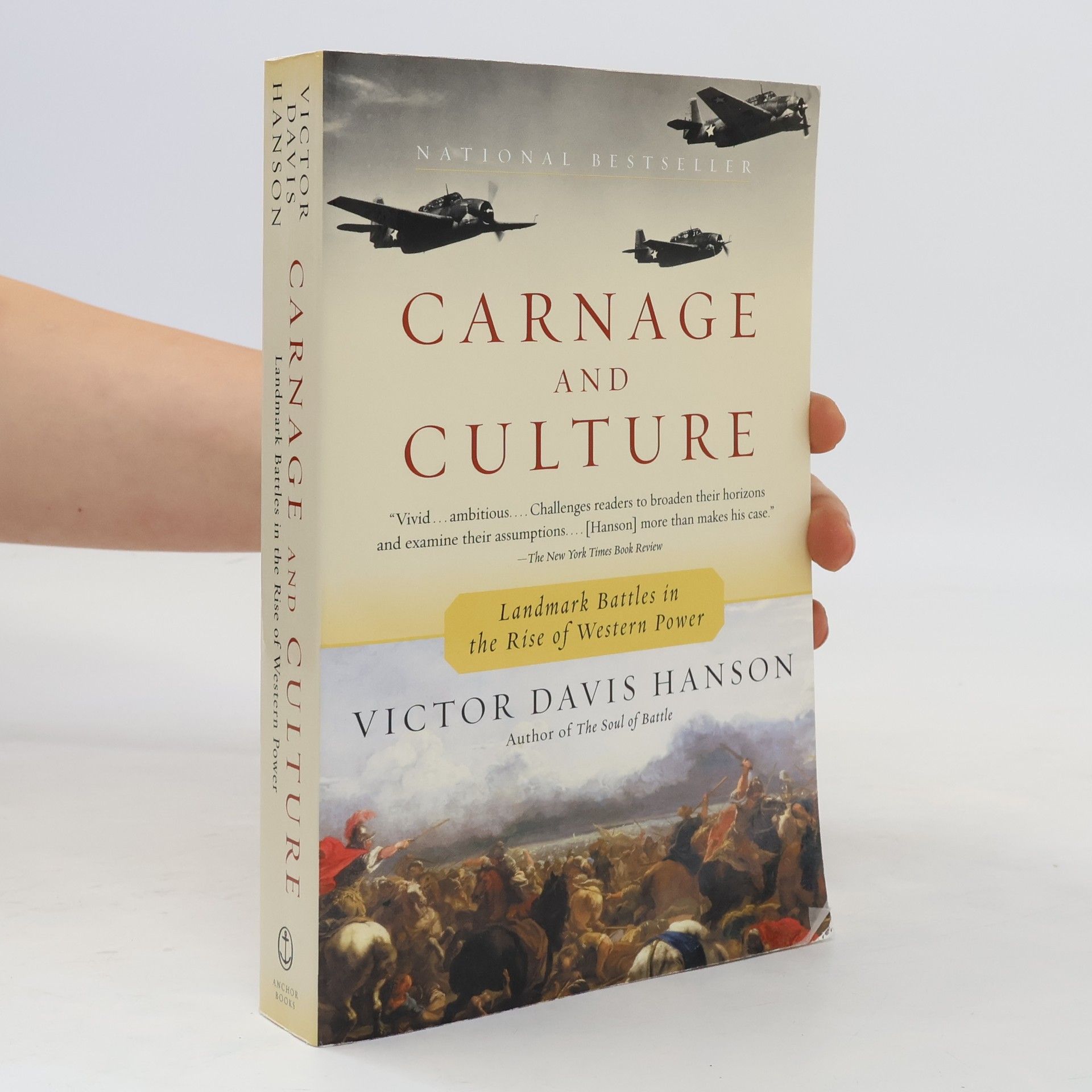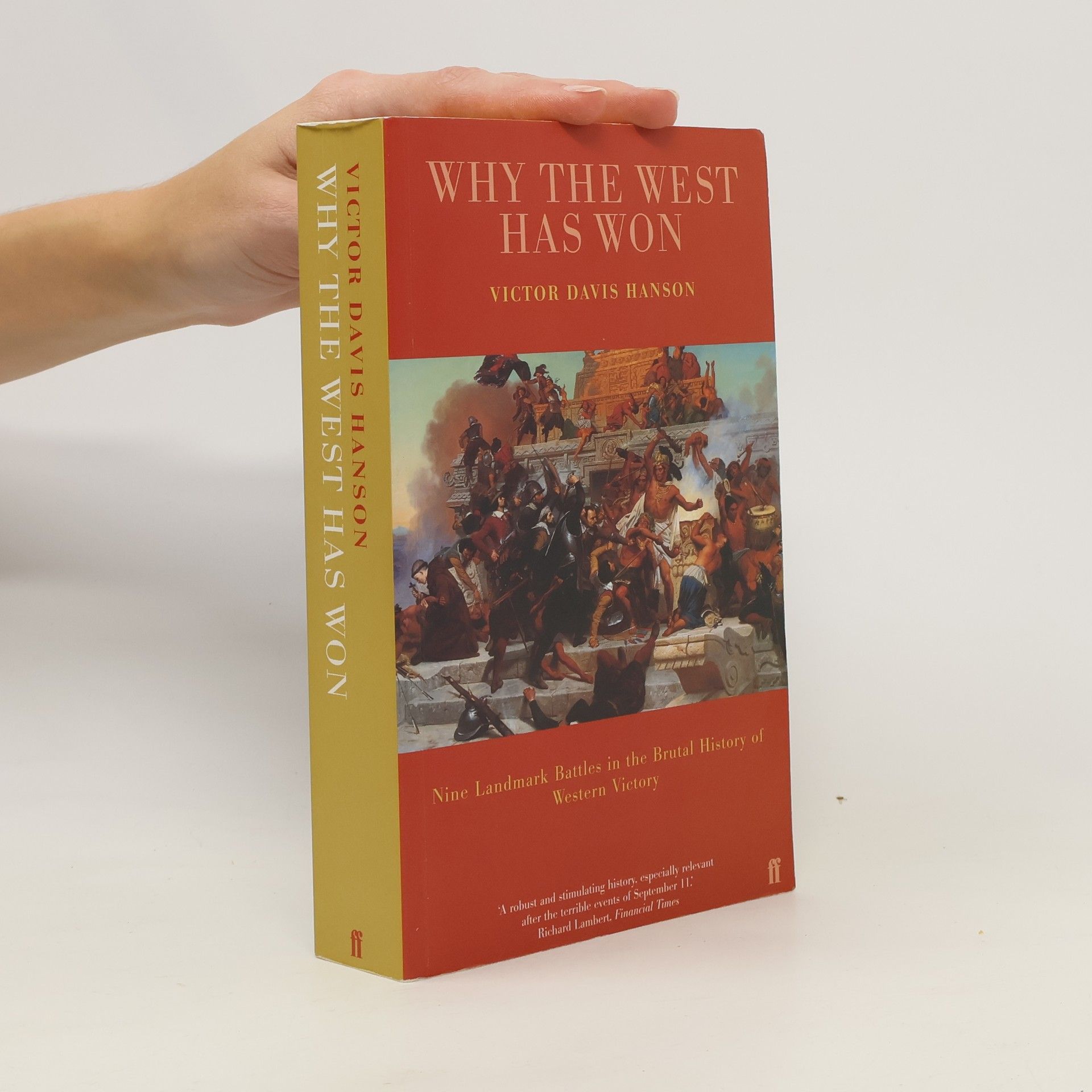Victor Davis Hanson Bücher
Dieser Autor erforscht die komplexen Verbindungen zwischen klassischer Geschichte und dem gegenwärtigen Leben und stützt sich dabei auf eine tiefe Vertrautheit mit antiken Texten und Kulturen. Seine Schriften befassen sich oft mit Themen wie Macht, bürgerlichen Tugenden und dem andauernden Erbe antiker Ideale in der modernen Welt. Durch aufschlussreiche Analysen und einen zugänglichen Stil bietet er den Lesern neue Perspektiven auf grundlegende Fragen der menschlichen Existenz. Sein Werk feiert die zeitlose Weisheit, die in klassischen Studien zu finden ist, und ihre heutige Relevanz.






The Second World Wars
- 720 Seiten
- 26 Lesestunden
A definitive account of World War II by America's preeminent military historian
The Dying Citizen
- 202 Seiten
- 8 Lesestunden
The New York Times bestselling author of The Case for Trump explains the decline and fall of the once cherished idea of American citizenship. Human history is full of the stories of peasants, subjects, and tribes. Yet the concept of the "citizen" is historically rare-and was among America's most valued ideals for over two centuries. But without shock treatment, warns historian Victor Davis Hanson, American citizenship as we have known it may soon vanish. In The Dying Citizen, Hanson outlines the historical forces that led to this crisis. The evisceration of the middle class over the last fifty years has made many Americans dependent on the federal government. Open borders have undermined the idea of allegiance to a particular place. Identity politics have eradicated our collective civic sense of self. And a top-heavy administrative state has endangered personal liberty, along with formal efforts to weaken the Constitution. As in the revolutionary years of 1848, 1917, and 1968, 2020 ripped away our complacency about the future. But in the aftermath, we as Americans can rebuild and recover what we have lost. The choice is ours.
Mexifornia
- 276 Seiten
- 10 Lesestunden
Part history, part political analysis and part memoir, Mexifornia is an intensely personal work by one of our most important writers. Hanson is perhaps best known for his military histories and especially his social commentary about America and its response to terror after 9/11, but he is also a fifth-generation Californian who runs a family farm in the Central Valley and has written eloquent elegies on the decline of the small farm, Fields Without Dreams and The Land Was Everything. Like those books, Mexifornia ponders what has changed in California over the last quarter-century. This time, Hanson's concern is how the state, the Southwest more broadly, and indeed the entire nation have been altered by America's hemorrhaging borders, and how our disordered immigration policies are perhaps most harmful to the Mexican immigrants who come seeking a better life.
The Case for Trump (Revised)
- 480 Seiten
- 17 Lesestunden
An instant New York Times bestseller: From an award-winning historian and regular Fox contributor, the true story of how Donald Trump has become one of the most successful presidents in history -- and why America needs him now more than ever
A War Like No Other
- 397 Seiten
- 14 Lesestunden
"A colorful history of the Peloponnesian War and its dramatic repercussions on the history of ancient Greece brings to life the events of the conflict, its impact on the great city-states of Athens and Sparta, and the personalities involved, including Pericles, Alcibiades, Sophocles, Thucydides, and others"--www.abebooks.com
Carnage & Culture
- 544 Seiten
- 20 Lesestunden
Through depictions of historic battles, the author exposes the connection between the West's superiority on the battlefield and its rise to world dominance, including controversial arguments ignited by the recent words of various historians
Why the West has Won
- 400 Seiten
- 14 Lesestunden
This is a brilliant history of the rise to dominance of the West, exploring the links between cultural values and military success.


